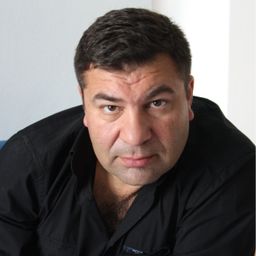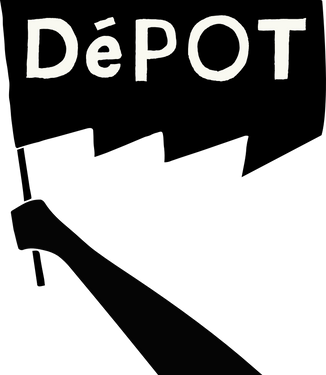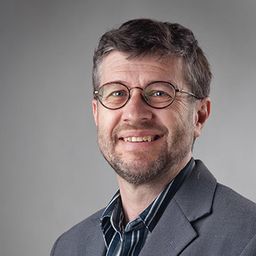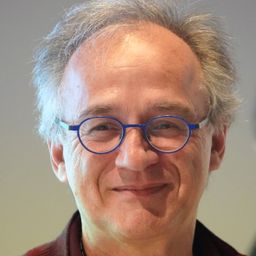
Rui Carvalho
Rui Carvalho is an architect specialising in the rehabilitation of architecture and urban centres. He began his career as a freelance architect and since 2004 he has been an architect in the Municipality of Mértola, in Portugal.
He is dedicated to the study of the urban and industrial mining heritage, viewing it not only as a historical legacy, but also as a spatial and narrative resource for tourism, cultural purposes, environmental and didactic reuses, and as it corresponds with the needs of contemporary society.
Rui prepared proposals for a plan to safeguard and value the historic mining urban core of the São Domingos Mine, in the Iberian Pyrite Belt (PT), and to delimit and classify the respective deactivated mining and archaeological area, later classified as a property of public interest as a mining heritage (2013).
He is currently developing a research project in a doctoral programme at the University of Seville, entitled “The Mining Cultural Landscape in the Chanza-Guadiana Border Territory (PT-ES)”.
Documents
Sessions auxquelles Rui Carvalho participe
Lundi 29 Août, 2022
In the cross-border region of Alentejo and Andalusia (PT-ES), in the space and environment at the confluence of the Chanza and Guadiana rivers, are located the abandoned mines of São Domingos and Las Herrerías (sec XIX-XX). The valuation of these territories is today an imperative for sustainability for communities and for the environment that were heavily affected by the impacts of intensive extraction and subsequent dismantling. In the global context of climate and environme...
Sessions auxquelles Rui Carvalho assiste
Dimanche 28 Août, 2022
Joignez-vous aux organisateurs du congrès et aux membres du board de TICCIH pour un cocktail de bienvenue et quelques mots festifs de présentation, dans l’ancienne forge de l’École technique de Montréal, fondée en 1909, aujourd’hui intégrée au campus de l’Université du Québec à Montréal.
Lundi 29 Août, 2022
This session is about the “hard facts” of conservation. It aims to draw together technical knowledge from related fields. Industrial conservation specialists rely on specialised knowledge and may sometimes not be aware that there is expertise and proven good or best practice in related fields. The transferring of knowledge from related engineering, construction preservation and architectural conservation specialists can serve the purpose of promoting and securing future preservation of ...
Dans une ambiance traditionnelle du temps des sucres québécois, profitez d’une tire d’érable roulée sur neige dans la plus pure tradition, accompagnée d’une musique de circonstance !
Si la vallée du canal de Lachine a été le berceau de l’industrialisation canadienne, la géographie industrielle métropolitaine ne s’y est pas confinée, peu s’en faut, Outre les grandes concentrations d’entreprises des quartiers centraux, elle est constituée des réseaux infrastructuraux, d’une douzaine de centrales hydroélectriques et des ensembles manufacturiers disséminés dans une quinzaine de petites villes aujourd’hui intégrées dans l’aire métropolitaine. La conférence proposera un surv...
Joignez-vous à nous pour poursuivre de manière informelle la discussion lancée lors de la conférence publique.Une consommation sera offerte aux quinze premières personnes arrivées.
Mardi 30 Août, 2022
This session focuses on company towns from the perspective of urban planning. “Company towns” are here defined as single-enterprise planned communities, usually centered around a single industry, where a company commissions an urban plan, builds housing for its workers, and sets up recreational, commercial, institutional or community facilities. While these are now endangered by a second wave of deindustrialization, we observe that, aside studies or monographs of individual towns that popu...
According to Rodney Harrison, “in the spirit of greater cross-disciplinary engagement, there is […] a pressing need to pay more attention to non-anglophone (and, indeed, non-Western) heritage literatures, histories and traditions” (2013: xiii), when we deal with critical approaches to heritage. This need is even greater when the scientific research focuses on countries such as Romania, Czechia, Bulgaria or Poland where Industrial Heritage, for example, is ignored and where the mechanism an...
During the Industrial Revolution coal was the most important energy source for both homes and industries. At the time, coal mining created strong regional industrial identities and mentalities, as well as industrial images and imaginaries in the eyes and minds of external observers. Such identities and ideas of coal would go on to shape industrial landscapes and communities.The papers presented in this session investigate the s...
Industrialization processes have been global from their very beginning. However, their interpretation still tends to be limited to specific locations or regions, and to specific time periods. Regularly, for example, it is stated that the industrial revolution started in Europe, from where it spread to the world, supposedly bringing technological and social progress to „less developed“ countries. Earlier periods of technology and knowledge transfer processes, that were already in place in t...
Pendant cette pause déjeuner, vous pouvez venir discuter avec l'auteur de son dernier livre.Cette discussion aura lieu à la table DePOT, dans le hall principal de la conférence. DePOT fait référence au groupe "Deindustrialization and the Politics or our Time" ; on y examine les racines historiques et l'expérience vécue de la désindustrialisation ainsi que les réponses politiques à celle-ci. Il s'agit d'un projet de partenariat du CRSH regroupant 33 organisations partenaires et...
Pays continent, dont l’industrialisation s’est amorcée dès le 19e siècle, le Canada a vu à la faveur entre autres de la désindustrialisation et de la requalification urbaine, des pans importants de son patrimoine industriel être altérés ou encore détruits. Cela étant dit, même ainsi, il n’en demeure pas moins que ce pays possède encore aujourd’hui un patrimoine industriel significatif. Or, le Canada étant une confédération, la protection et la sauvegarde de cet héritage industri...
Cette session nous permettra d’explorer à travers neuf cas d’études internationaux les différentes stratégies de mise en valeur de patrimoines industriels ainsi que leurs impacts sur les communautés et leur territoire. L’analyse de musées, d’espaces culturels, de parcours et d’aménagements urbains sera l’occasion de mettre en relief les questionnements d’identité, de sens, de pertinence et d’impacts qui animent l’ensemble des acteurs de ce patrimoine en transformation. ...
Les efforts visant à préserver le patrimoine industriel s'inscrivent dans un contexte socio-économique et politique précis. Mais qu'est-ce qui est préservé et pour qui ? Et, par ailleurs, quelle est la relation entre les sites du patrimoine industriel et les communautés ouvrières soumises à la désindustrialisation qui les jouxtent souvent ? Steven High examinera les façons dont la préservation du canal de Lachine à Montréal, le principal site du patrimoine i...
Joignez-vous à nous pour poursuivre de manière informelle la discussion lancée lors de la conférence publique.Une consommation sera offerte aux quinze premières personnes arrivées.
Mercredi 31 Août, 2022
Visite de l’exposition permanente : À cœur de jour, grandeurs et misères d’un quartier populaire, qui retrace l’histoire d’un des plus anciens quartiers industriel et ouvrier de Montréal. Découverte de l’ancien bain Généreux, bâtiment rappelant une époque ou la majorité des logements ouvriers n’avaient ni bain ni douche. Présentation de quelques éléments du patrimoine du quartier sur le trajet entre l’...
The legacy of open pit mining in general, and in the landscape of the Lusatian lignite district in Germany in particular, is a recultivated, restored, man-made, technogenic landscape. However, the future post-mining land uses in Lusatia must be understood as an opportunity that enables future-oriented land use not only from a technological-scientific and economic basis, but also from a social and especially cultural perspective. Therefore, the currently often negatively described Lusatian ...
L’activité industrielle est un puissant facteur de concentration de population. En témoignent les sites antiques ou médiévaux étudiés par les historiens, souvent proches des mines, des carrières ou des chantiers de construction. À partir du XVIIIe siècle, cependant, avec les premiers développements industriels, des liens forts se tissent entre les usines et diverses formes d’urbanisation. De la variété de rapports que construit l’industrie avec la ville ou, plus largement, avec les lieux d...
This session brings together a set of studies focused on the uses adaptative reuses (and even replications) of industrial heritage in the larger context of its urban and social landscapes. Urban industrial memory, its social and territorial impacts, as well as its conservation and promotion, will be discussed from a variety of case studies ranging from Central and Southern Europe to Turkey, China and North America. The interdisciplinary approaches underlying each of the studies will also b...
The Global and Local Section of TICCIH aims to continue its collaborative work by organising a separate session within the framework of the 18th congress in Montreal, Canada. Following its previous sessions centred on various subjects at the Freiberg, Tampere, Taipei and Lille TICCIH conferences, this time the Section will focus on the identity of industrial civilisation in the post-communist countries in Central and Eastern Europe from the angle of its industrial heritage, lost or preserv...
This session addresses a perpetuating disjunction between conceptualisation of heritage and heritage making in heritage studies vis-a-vis heritage management and conservation of industrial heritage sites. There is an inevitable impact of this disjunction on advancing policy in people- and place-centred approaches to heritage futures. This session aims to explore ways in which tangible and intangible traces of the past can be utilised creatively in shaping desirable places to dwell and work...
Rome Reloaded. Or Industrial Heritage Meets the ArtsSince the end of the Industrial Age, the treatment of its heritage has changed from demolition to preservation (Kierdorf/Hassler 2000). In Rome—which is usually not perceived as an industrial city—, over 60 related examples (Torelli Landini 2007) offer a wide field of research regarding visions for its future. Recently, the challenges to reload those artefacts have been accepted also by foreign...
Ce tour propose une excursion sur un pont privatisé du bateau-mouche de Montréal; une visite commentée ludique permet de découvrir quelques hauts-lieux du paysage industriel de la ville depuis le fleuve Saint-Laurent. La visite est tarifée pour couvrir les frais supplémentaires; le tarif inclut l'accès au bateau-mouche, l'excursion et une boisson.Le départ se fera à pied depuis le lieu d...
In this lecture, I would like to talk about deindustrialised communities, heritage and memory in the context of right-wing populism. Drawing on studies of memory and heritage, I argue that right-wing populists have cornered the market on talking about the past of deindustrialised communities. They have successfully misrepresented this rich and complex history to fuel rage, resentment, fear and reactionary nostalgia. Indeed, ‘the past’, and in particular the industr...
Joignez-vous à nous pour poursuivre de manière informelle la discussion lancée lors de la conférence publique.Une consommation sera offerte aux quinze premières personnes arrivées.
Jeudi 1 Septembre, 2022
De sa construction à sa restauration, plongez dans l’histoire et le présent de ce lieu incontournable du patrimoine industriel canadien. Voie maritime centrale au pays, port intérieur majeur, le Lowell canadien (recours à l’énergie hydraulique), berceau de l’industrialisation, Smokey Valley (recours à la vapeur), haut lieu de l’industrie manufacturière, le canal de Lachine est tout cela et plus encore. Car, il est également un lieu historique national où, depuis la réouverture du canal à l...
Des exemples pris sur plusieurs continents, en Europe, en Amérique du Sud, en Amérique du Nord, en Turquie, montrent des permanences fortes dans les objectifs qui président à la réutilisation des bâtiments industriels, par exemple le soucis de prendre en compte le patrimoine industriel comme une ressource pour le développement urbain et territorial ou encore les liens étroits qu’il entretient avec la culture, qu’il s’agisse de son utilisation pour abriter des équipements culturels ou plus ...
Si le blé occupe une place mythique dans l’histoire de l’industrie au Canada, le pain et la boulangerie n’ont pas suscité le même intérêt. Témoin de l’époque artisanale, puis de l’industrialisation, le secteur du pain connaît aujourd’hui un retour à des modes de production préindustriels, dans la foulée de la « glocalisation » qui caractérise plusieurs produits alimentaires. Les études consacrées à la fabrication du pain se sont surtout intéressées au monde rural et à l’époque préindustrie...
Transportation and distribution have served as the secondary component to significant industrial expansion after energy and power transformed modes of production. Expanding production permitted increases in output demanding a means to both bring new materials into industrialized regions and export products to markets. Canals and shipping provided the earliest forms of bulk transportation but were limited by capacity, geography, and envir...
This session addresses a perpetuating disjunction between conceptualisation of heritage and heritage making in heritage studies vis-a-vis heritage management and conservation of industrial heritage sites. There is an inevitable impact of this disjunction on advancing policy in people- and place-centred approaches to heritage futures. This session aims to explore ways in which tangible and intangible traces of the past can be utilised creatively in shaping desirable places to dwell and work...
Meet the authors Heike Oevermann and Mark Watson, who together with Bartosz Walczak completed the TICCCIH comparative thematic study: “The Heritage of the Textile Industry” (Lodz, 2022),It may be downloaded free here: The Heritage of the Textile Industry (lodz.pl) or
This lecture will argue that the landscapes of industrial heritage that can be found in different parts of the world are directly related to the place-specific trajectories of deindustrialization. In other words: the different ways in which deindustrialization impacts on local communities has a direct bearing on the emergence of forms of industrial heritage. I will differentialte between deindustrialization paths and related industrial heritage regimes in a) Anglo-...
Le quartier Centre-Sud est un ancien quartier industriel et ouvrier ; son patrimoine est riche et unique. La visite permettra de découvrir, entre autres, l’usine Macdonald Tobacco et la confiserie Raymond, les anciens logements ouvriers typiques du quartier, et les réutilisations d’anciens bâtiments à des fins culturelles et communautaires. L’activité débutera au métro Frontenac et se terminera par une visite à l’Écomusée du fie...
Vendredi 2 Septembre, 2022
Les participants se retrouveront à l'entrée (il n'y en a qu'une) du métro Lionel Groulx et de là, ils longeront le canal jusqu'aux écluses de St-Gabriel. Cette zone était autrefois la plus industrialisée du Canada. C'est aujourd'hui une zone d'affluence entre le quartier difficile, mais en voie d'embourgeoisement, de Pointe-Saint-Charles, historiquement irlandais et français, et la Petite-Bourgogne, l'un des premiers quartiers multiraciaux de Montréal. Plusieurs anciennes usines ont été co...
In this meeting, TICCIH representatives from around the world will present work in the field of industrial heritage in their respective countries. The presentations are based on the national reports that TICCIH has gathered for the 2022 World Congress, but may emphasize particular matters. These can range across several fields where industrial heritage plays a role – from academic research and other forms of knowledge production, to heritage management a...
In this meeting, TICCIH representatives from around the world will present work in the field of industrial heritage in their respective countries. The presentations are based on the national reports that TICCIH has gathered for the 2022 World Congress, but may emphasize particular matters. These can range across several fields where industrial heritage plays a role – from academic research and other forms of knowledge production, to heritage management a...
At every World Congress, the international TICCIH community celebrates a General Assembly of its members. The event is open for any registered member of TICCIH, as well as the wider public. According to the current TICCIH Statutes (https://ticcih.org/about/statutes/), however, only Na...
In the refusal of people in communities abandoned by industrial capital to abandon their own places, we can read an implicit critique of the mobility and unaccountability of capital, raised by those who were once inside (however tenuously or uncomfortably) and now find themselves marginalized, “left behind.” The desire to catch up again, whether through attracting new investment or transvaluing abandoned sites as tourist attractions, makes this an essentially conservative critique that is ...
Venez échanger sur les bons moments du congrès et célébrer vos découvertes scientifiques et professionnelles dans une ancienne fabrique de confiture de fruits, l’Usine C, construite en 1913 et transformée à la fin des années 1970 en lieu de création et de diffusion.Découvrez la gastronomie montréalaise grâce à un traiteur d’exception. Apprenez des bribes du patrimoine musical montréalais et de l’histoire du quartier industriel qui lui a prêté vie. Puis entendez et vivez la tradition...
Samedi 3 Septembre, 2022
Suivez les traces du réseau ferroviaire du Canadien Pacifique et des anciens ateliers Angus, qui ont joué un rôle majeur dans le développement industriel et résidentiel du quartier Rosemont. Cette visite vous propose de mieux comprendre l'histoire de différents sites industriels établis dans ce quartier et transformés aujourd'hui en milieux de vie et en pôles d'emploi.Une visite conçue et guidée par Héritage Montréal. Départ au coin des rues...











